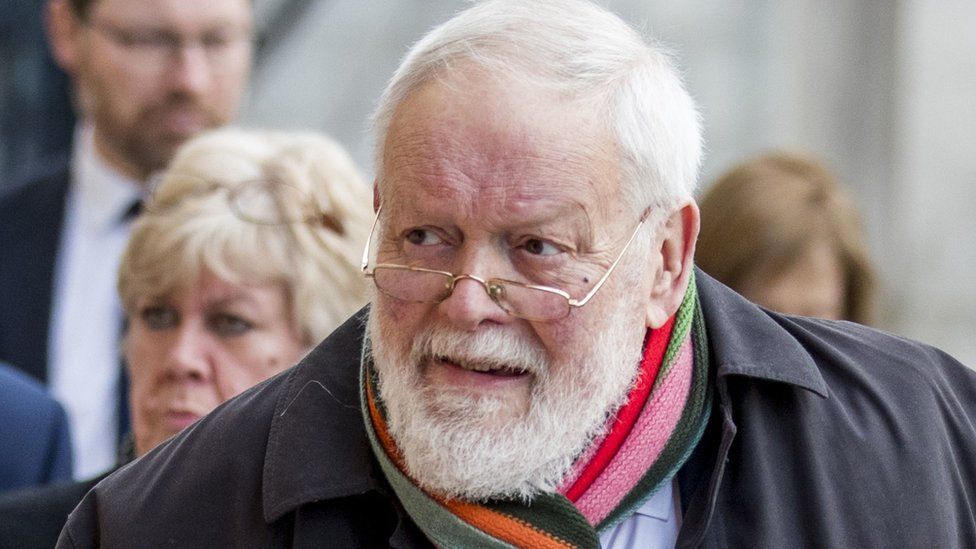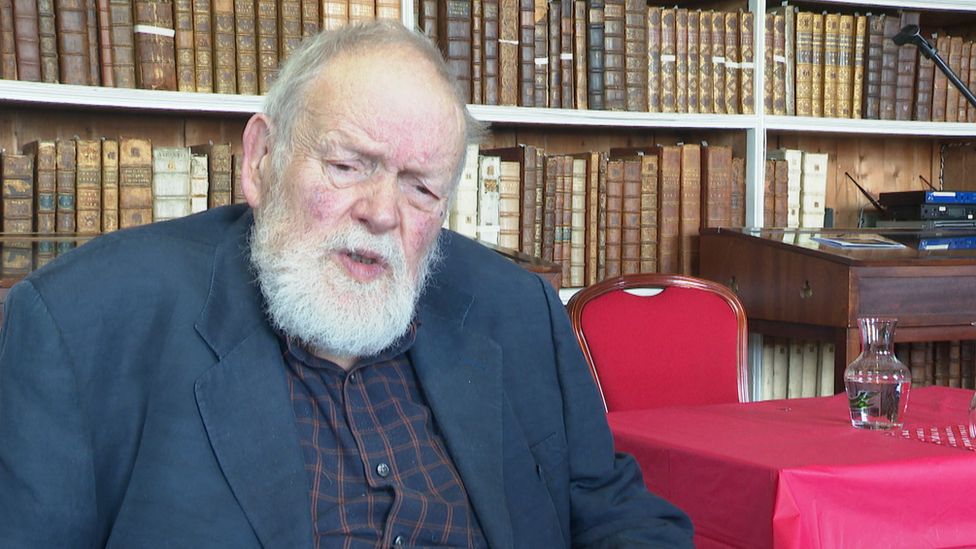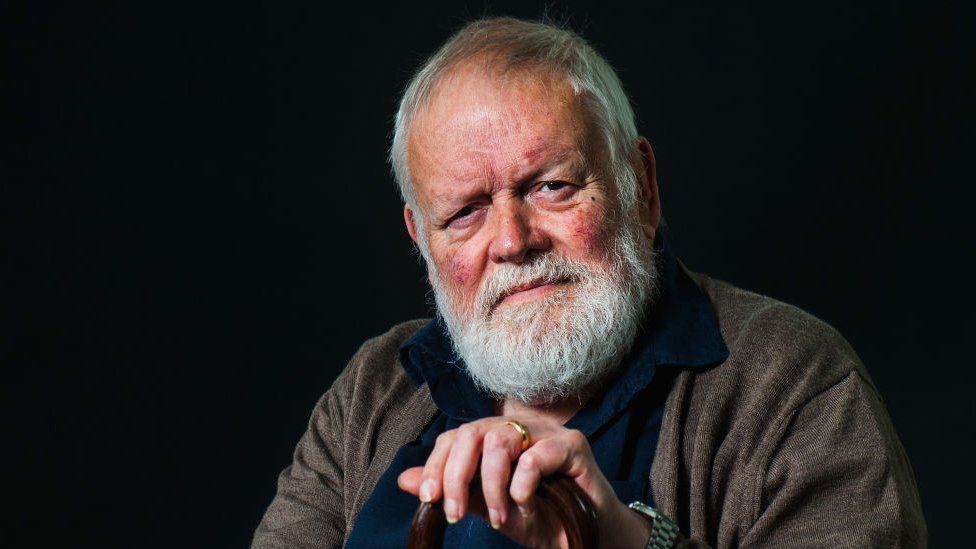
“It’s a mystery. If I knew where poems came from, I would go there.”
These are the words of Belfast-born poet Michael Longley as he shares insights on the friendships and places that have inspired his work.
Michael Longley: Where Poems Come From sees the writer discuss his work in an intimate new documentary for BBC Northern Ireland.
Longley said that the filmmakers had delved “deep between the lines (of his poems) and illuminated them”.
“With great subtlety they suggest the mystery of where poems come from,” he said.
This film celebrates the work of the award-winning poet, who was born in 1939.
Love of nature
It reflects the inspiration that Longley has taken from the landscape and wildlife of Carrigskeewaun in County Mayo, which he regularly visits.
Remembering Carrickskeewaun is about that remote place by the coast.
Longley said: “The first thing you notice here is the silence, and the caress of the sea air.”
He says the place had influenced his poetry, adding: “It’s now a state of mind, and I carry it with me.”
His love of nature, and County Mayo, is reflected in poems such as Swans Mating and Form, the latter being the name for the home of a hare.

He said Form was about the “warmth of life, and the brevity of our life on earth”.
“The central enrichment of my life has been sharing this landscape with my spouse, the mother of my children, and bringing the children here, and our children bringing their children.
“And that’s all contained in this little improvised grassy pocket which the hare rests in.
‘All things are fragile’
“The whole point about poems is they exist because that’s the only way of saying something. I’m an Irish poet; if I’m not an Irish poet I’m nothing.”
The documentary captures the important moments in his life, including meeting his wife Edna, an author and literary critic, while studying together at Trinity College Dublin and his close friendship with Seamus and Marie Heaney.
“If poetry is a wheel, the hub for that wheel is love poetry,” he adds.
Longley says that when he finishes a poem he celebrates with a dance – “whoopee, whoopee” – before calling his wife Edna to cast her critical gaze over his work for a bit of constructive feedback, adding: “Nine times out of 10 they’re good suggestions.”

On meeting his Edna for the first time, Longley said: “I remember her raven-black hair, and then I was struck by the beauty of her voice. From the beginning I hung on her every word.”
The couple married in December 1964.
Longley wrote the poem The Pattern about his wedding day, inspired by Edna’s dress; she had made it from a pattern in Vogue magazine.
- Michael Longley wins €250,000 poetry prize
- Unionists should embrace Irish, says poet
- Original Roald Dahl books to be kept in print
“I think that would be one of my themes – the fragility of experience, as symbolised by the tissue-paper pattern for the dress itself, and our own existence, and our own marriage and friendship. All of these things are fragile,” Longley says.
‘Ferocity’ of the Troubles
Living in Belfast at the height of the Troubles, Longley was reluctant to write about the conflict.
But it affected him personally and was explored in in some of his poems, including The Ice-Cream Man.
On remembering the Troubles, Longley said: “I was overwhelmed and flabbergasted by the ferocity of it all. I still find it really difficult to understand how you can shoot a neighbour simply because of his or her religion.”
This inspiration is evident in one of his best-known poems, Ceasefire, published in 1998.
Inspired by the classical world and its texts, Longley is also drawn to poetry from World War One and World War Two.
When his father was badly wounded in the latter, he taught himself to play the harmonica in the trenches. This inspired Longley to write his favourite poem Harmonica.
And his legacy?
“Part of me needs to believe in a soul. I think the fact that some of my poems might be read after I’m dead might be a definition or a guess as to what a soul might be,” he tells the documentary.
He says he wants his ashes scattered on the hills of his beloved Carrigskeewaun, and marked by a modest stone with a simple inscription: “poet”.
“My wife Edna is still making up her mind whether she wants to join us there. But it’s where I want our souls to mingle with the wind.”
The film is directed by Adam Low, who said the poet’s energy at 84 is “simply remarkable”.
“His radiant poems about the natural world are so inspiring for a film-maker, and his deeply humane response to the political violence in Northern Ireland – and elsewhere – is extremely moving,” he said.
“His lifelong love of jazz and his relationship with his wife Edna gave the film both humour and heart.”
Produced for the BBC by DoubleBand Films and Lone Star Productions, the documentary will be broadcast on BBC One Northern Ireland on Monday at 22:40 GMT and will be available on the BBC iPlayer.
Related Topics
- Poetry
Michael Longley wins €250,000 poetry prize
- 3 July 2022

Literature should not be changed, says poet Longley
- 9 May 2023

Unionists should embrace Irish, says poet
- 27 December 2018
